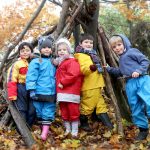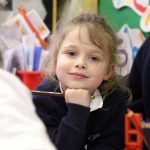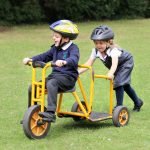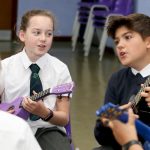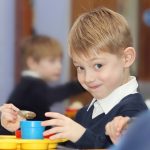Class 5 Spring Term Newsletter
Spring Newsletter, Year 5 Badger Class
Welcome back! We hope you have enjoyed your holidays and are looking forward to 2022. We outline below the curriculum areas to be covered this term.
English
In English this term, we will be reading a classic text as a class and discussing similarities and variations in themes, style and language choices with modern literature. In our own writing we will be developing our ability to vary sentence structures and to write at length with increasing cohesion and impact, using parenthesis and modal verbs appropriately. We will be linking with our topic learning to put our research and report writing into practise and will be reading about The Titanic in our poetry unit. Our word focus will continue to develop the children’s understanding of etymology, identifying word roots and adding prefixes and suffixes to alter meaning. Self- and peer-assessment remain important areas for development and we will be using a range of approaches to improve the children’s ability to assess and improve their own written work. Our reading groups will support the children to explore their understanding of and responses to texts and we encourage the children to read as widely as possible both within school and at home.
Maths
We will start this term by looking at place value involving decimal numbers. The children will add and subtract 2 place decimal numbers. They will understand the effect of multiplying/dividing by 10, 100, 1000 and will locate 2-place decimal numbers on a number line, rounding them to the nearest tenth or whole number. The children will write decimal numbers as fractions. They will identify, name and write equivalent fractions to their simplest form and compare and order fractions. We will revisit the short multiplication and division method with 3/4-digit numbers. The children will deepen their understand of 3-D shapes, recognise, measure and draw angles. They will work out perimeter, area and volume and use co-ordinates and line graphs. We will regularly set the children problem solving investigations to develop their real-life problem solving and reasoning skills.
History and Geography
This term, we will begin by learning about early Islamic civilisation, studying Baghdad in around 900AD. We will learn about the development of teaching and learning based around the House of Wisdom and the importance of some of the ideas developed here for life today. Our geography topic will involve a study of rivers, including a field trip to Daws Hall to look at the features and explore the water quality of the River Stour.
Science
This term we will continue to learn about forces, discussing what gravity and resistance are and identifying the effects of friction and water resistance. We will then learn about Earth and Space. The children will describe the movement of the Earth, and other planets, relative to the Sun in the solar system and they will describe the movement of the Moon relative to the Earth. The children will use the idea of the Earth’s rotation to explain day and night and the apparent movement of the sun across the sky. The children will have lots of opportunities to work scientifically, planning different types of scientific enquiries to answer questions. They will take measurements, use a range of scientific equipment, record results using scientific diagrams and labels, and report and present their findings using conclusions and scientific explanations.
Computing
The children will learn how to be architects whilst creating a virtual space. They will research examples of art gallery architecture before creating their own virtual gallery. In the second half term, the children will be learning to become web developers. They will explore the HTML tool used to create websites and edit this using specific tools. The children will also create their own website about online safety.
Art and DT
Our Art this term will involve a study of paintings of water, including work by Maggi Hambling, Turner, Monet and Hockney and learning to apply acrylic paint in a style inspired by Hambling’s wave paintings. We will also be exploring ideas generated by Vernet’s painting, A Shipwreck on Stormy Seas, in Art Week.
In DT, we will develop our needlework skills to design and produce a textile purse for a fictional character of our choices.
RE and PSHE
In RE, we will be learning about and comparing creation stories from the Christian and Hindu faiths as well as studying Hindu death rituals and comparing these with Christian practices, linking with the Easter story.
Our PSHE this term will focus on healthy lifestyles as well as thinking about what it means to belong to a community. This will include how we can keep ourselves healthy, both physically and mentally, developing our learning about focus and concentration from the Paws b curriculum and building our ability to listen to and understand others as well as considering the importance of our actions for the environment and others in the world.
Music
This term the children will be making links to music within dance. They will focus on beats, timings and speed.
PE
For the first half term, the children will be partaking in dance and tag rugby. In the second half term they will take part in badminton and netball.
French
We will be continuing to practice our spoken French and our numbers to 50 and will be broadening our vocabulary to order a range of food items in a café or shop and tell the time to the quarter hour. We will also learn about our homes and how to name the rooms in a house in French. We are beginning to recognize the use of agreement in French and to apply this in our own sentence making and are becoming increasingly confident to spell and pronounce French words correctly. Our French ‘running dictations’ and in-class games help our ability to recall our learning but any further practice you feel able to do at home would also help this greatly.
Homework
The children will continue to be asked to complete 3 pieces of homework each week; these will include spellings and one piece each of English and maths homework, each taking approximately 40 minutes to complete. As previously, homework should build upon work in class and it should be clear to your child what is required of them. Please limit your support to ensuring that they have the opportunity to complete their work in time, discussing the activity required – asking them to explain their work to you can help to clarify and embed their learning – and making sure that they present their work neatly and to the best of their ability. If they have any questions, we are always happy to answer them.
As ever, please encourage your child in their reading, giving them the opportunity where possible to sample a wide range of text types and support their interest in reading by discussing what they have read and by continuing to share texts together when possible. They should read daily at home, completing reading challenges regularly as they wish.
If you have any concerns or issues you would like to discuss regarding your child, please don’t hesitate to ask contact the office if you would like to arrange a meeting.
Thank you for your ongoing support.
Mrs Rudkin and Miss Sabin













